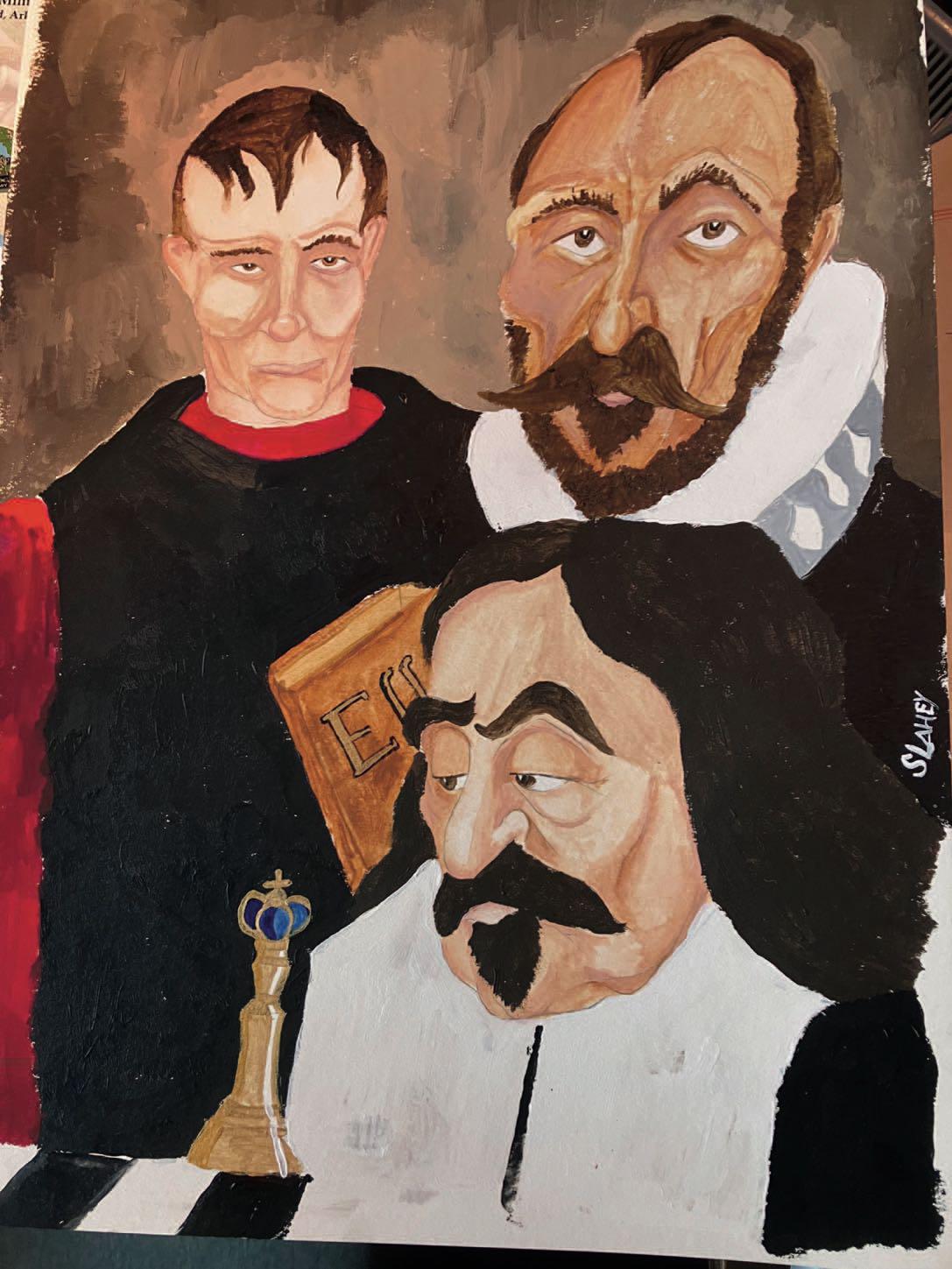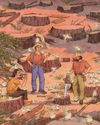Prøve GULL - Gratis
Philosophy & The Crown
Philosophy Now
|February/March 2024
Vincent Di Norcia on monarchy and stability.

Machiavelli is a political philosopher with a sulfer-ous reputation. His comment above, though, reflected his bitter personal experience of war-ring Italian city states. He wrote The Prince after his decades of dedicated and skillful public service to the Flo-rentine Republic had been rewarded with torture and exile. Perhaps his implicit approval of the relatively stable hereditary monarchies was not surprising. Nor was René Descartes' sup-port for monarchy, for, as he wrote, his “whole aim was to find security”, and he “prized tranquility over everything” (Discourse p.28; p.54). So he saw support for the legitimate authority of his King as a moral choice. His ‘first moral maxim’ echoed Michel de Montaigne’s support for Henry II in back 1574, when civil war had broken out in France after the 1572 St Bartholomew’s Day massacre of Huguenots by Catholics. While Montaigne complained that “the moral laws concern-ing the duty of each man in himself are hard to frame”, he com-bined private duty with public reason, including submission to public authority, to write: “It is in justice that kingly virtue mainly consists” (Essays, 1580, p.336). Descartes, who knew Montaigne’s Essays, was certainly influenced by the views of his great predecessor.
Denne historien er fra February/March 2024-utgaven av Philosophy Now.
Abonner på Magzter GOLD for å få tilgang til tusenvis av kuraterte premiumhistorier og over 9000 magasiner og aviser.
Allerede abonnent? Logg på
FLERE HISTORIER FRA Philosophy Now

Philosophy Now
Books
Lucy Weir takes a wheel of healing for an intellectual spin, Frederik Kaufman examines a theory of the origins of equality, and Frank S. Robinson doubts a holistic vision of life, the universe, and everything.
14 mins
October/November 2025

Philosophy Now
Moral Decision-Making for a Job Search
Norman Schultz wonders when working is wrong.
14 mins
October/November 2025

Philosophy Now
The Mediation of Touch
A conversation between Emma Jones and Luce Irigaray.
15 mins
October/November 2025

Philosophy Now
Edward Gibbon (1737-1794)
John P. Irish considers some principles of history through the history of a historian.
11 mins
October/November 2025

Philosophy Now
Karl Sigmund
is an emeritus professor of mathematics at the University of Vienna. He has made major contributions to evolutionary game theory and to the history of the Vienna Circle, who met regularly in Vienna from 1924-1936. Katharine Mullen talks with him about mathematics, and about the Vienna Circle.
5 mins
October/November 2025

Philosophy Now
Can Al Teach Our Grandmothers To Suck Eggs?
Louis Tempany wonders whether the problem is with the machines or with us.
7 mins
October/November 2025

Philosophy Now
Revisiting the Ontological Argument
Raymond Tallis contends that a definition of God cannot necessitate God's existence.
7 mins
October/November 2025

Philosophy Now
What My Sister Taught Me About Humanity
Lee Clarke argues that we need a more inclusive view of moral personhood.
13 mins
October/November 2025
Philosophy Now
Macmurray on Relationship
Jeanne Warren presents aspects of John Macmurray's philosophy of the personal.
4 mins
October/November 2025

Philosophy Now
Forced Vaccination
Naina Krishnamurthy asks if it's ethical or egregious.
8 mins
October/November 2025
Listen
Translate
Change font size

